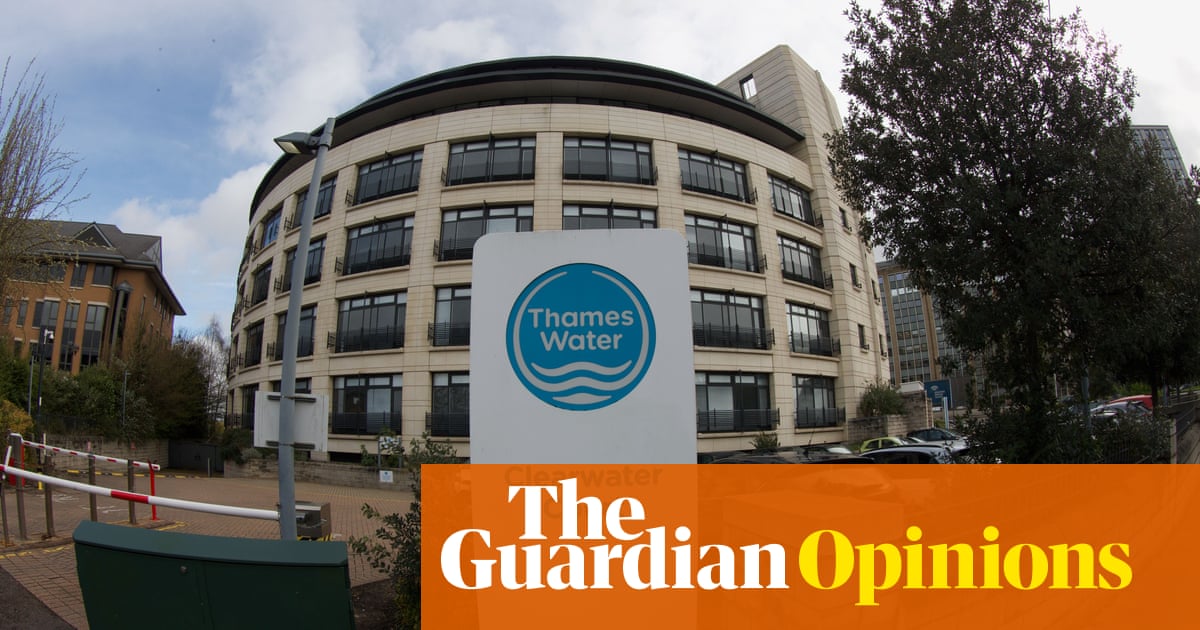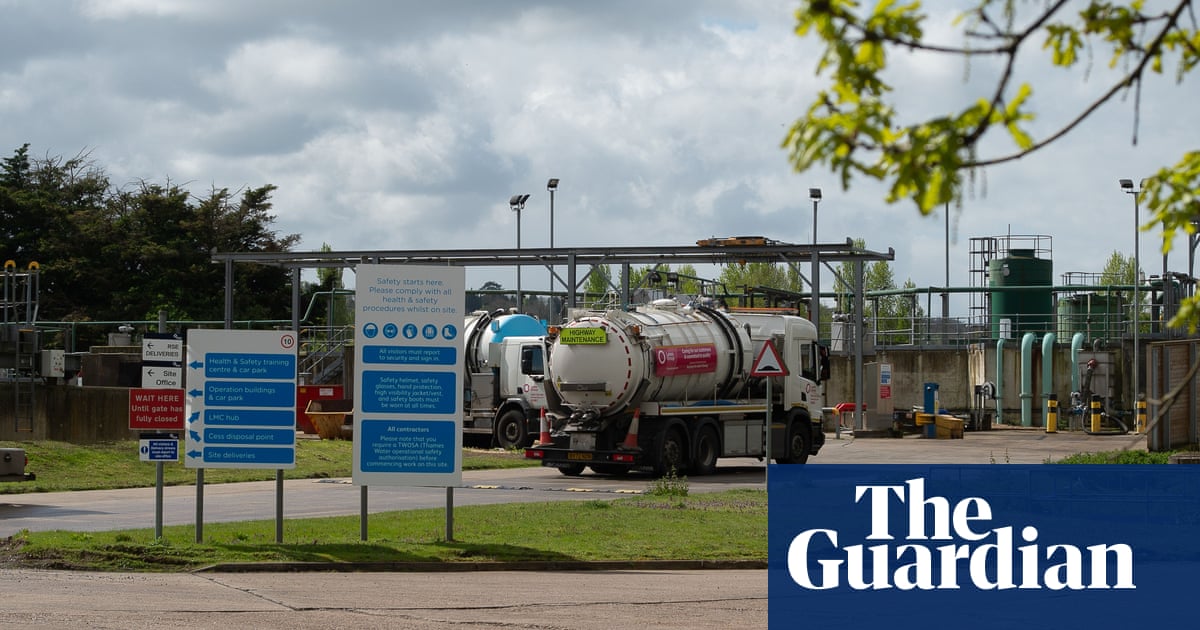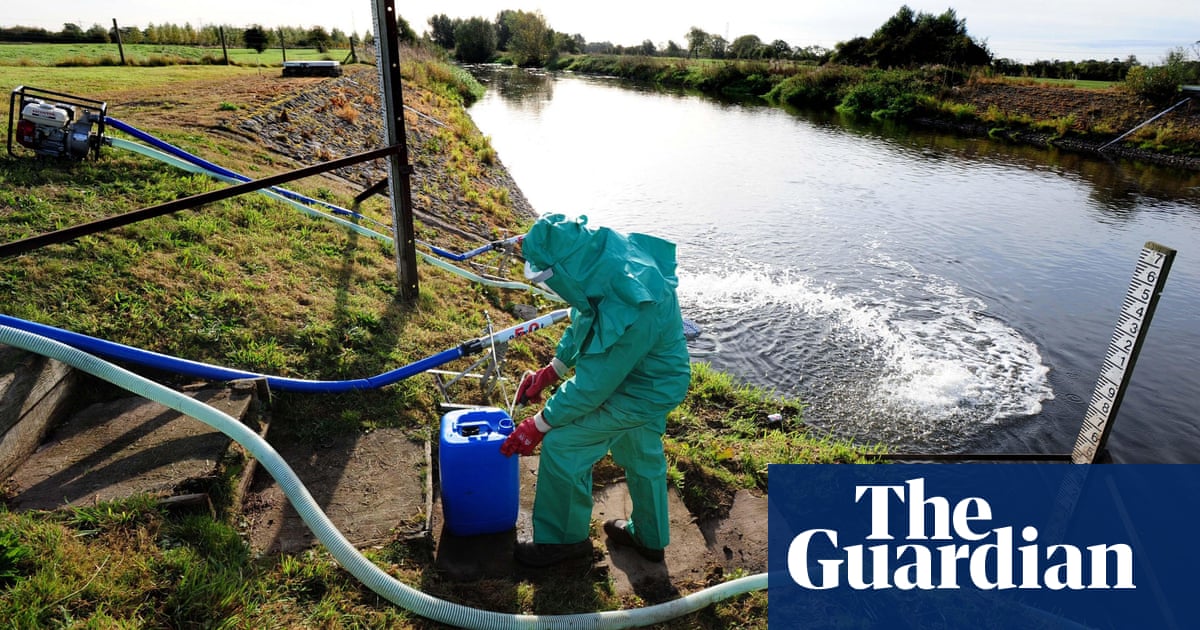
English water companies have handed more than £2bn a year on average to shareholders since they were privatised three decades ago, according to analysis for the Guardian.
The payouts in dividends to shareholders of parent companies between 1991 and 2019 amount to £57bn – nearly half the sum they spent on maintaining and improving the country’s pipes and treatment plants in that period.
Critics say while continuing to pay huge dividends they have failed to carry out significant national infrastructure works to improve the water and sewerage system.
When Margaret Thatcher sold off the water industry in 1989, the government wrote off all debts. But according to the analysis by David Hall and Karol Yearwood of the public services international research unit of Greenwich University, the nine privatised companies in England have amassed debts of £48bn over the past three decades – almost as much as the sum paid out to shareholders. The debt cost them £1.3bn in interest last year.
Hall concludes the companies have borrowed to pay dividends, rather than to invest in infrastructure projects. The £123bn of capital expenditure spent by the companies has all been financed by customer bills, the analysis states.
“A large amount of debt has been borrowed. But since the revenue from user charges covered capital expenditure, this debt has been used to finance dividends rather than capital expenditure,” Hall said.
In the past 10 years, the companies have paid out £17bn in dividends and directors’ pay has soared. The earnings of the nine water companies’ highest-paid directors rose by 8.8% last year, to a total of £12.9m. The highest paid CEOs were at Severn Trent, with a salary package of £2.4m, and United Utilities, a salary package of £2.3m.
In comparison, the highest paid director of publicly owned Scottish Water earned £366,000.
Ellen Lees of the campaign group We Own It said: “Rather than paying out billions to shareholders, the water companies could have been investing in the infrastructure the system needs,” she said.
“It’s time to put an end to this farce that is ripping off the public and ruining our environment. It’s time to bring our water into public ownership.”
Scottish Water, which is publicly owned, has invested nearly 35% more per household in infrastructure since 2002 than the privatised English water companies, according to the analysis. It charges users 14% less and does not pay dividends.
The performance of the water companies in England has been criticised by the Environment Agency. In the latest assessment, Emma Howard Boyd, chair of the agency, described the firms’ performance in 2018 as “simply unacceptable”.
Rather than improving, it had deteriorated, with more serious pollution incidents that damaged wildlife, the local environment and in the worst cases public health, she said.
Howard Boyd said nothing she had seen last year suggested any of the companies were making significant improvements. The performance assessment for 2019 is due in July.
Dieter Helm, a professor of economic policy at Oxford University, said water companies could not be blamed for exploiting the system.
“The water companies behaved exactly how we believe a commercial company does behave,” he said. “The question is, do we expect capitalists to behave like capitalists? What we have seen is a complete regulatory failure to control the companies.”
The industry regulator, Ofwat, has recently challenged the water companies on their dividend policies.
Anglian Water said it was incorrect to say debt was being used to pay dividends. “Financing though debt is the most cost-effective and legitimate way to fund new infrastructure. Customers benefit: bills are cheaper. This is why we do it.”
It said investors had not taken a dividend payment since 2018. However, according to the company’s annual report, dividends totalling £67.8m were paid in the financial year to the end of March 2019.
When this was put to Anglian, a spokesperson said: “The £67.8 referred to as a dividend was retained within Anglian Water Group and used to finance group operating costs and working capital needs … which I appreciate wasn’t clear from the wording used [in the annual report].”
Thames Water said its shareholders were in it for the long term and had not taken a dividend payment for three years. “We invested more than £1bn again in 2019-20, leading to a total of £15bn in the past 15 years.
“We will continue to spend wisely on improving resilience, service and efficiency, as well as provide more support for customers in vulnerable circumstances.”
An Ofwat spokesperson said: “Over the past few years, we have challenged how companies approach their decisions on dividends. We expect companies to have strong governance arrangements and to be fully transparent about how dividends reflect delivery of obligations and commitments to customers and the environment.”
• Statements from the water companies can be read in full here.












